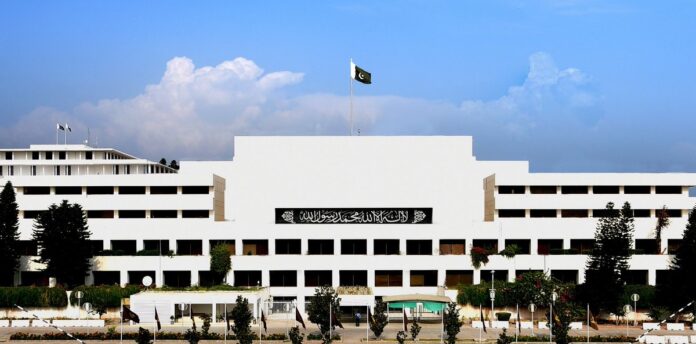ISLAMABAD: The National Assembly’s Standing Committee on Planning, Development and Special Initiatives has expressed deep dissatisfaction over the federal and provincial governments’ handling of flood relief and recovery operations, demanding accountability and transparency in the distribution of aid.
Chairing the meeting at Parliament House, Syed Abdul Kadir Gillani, MNA, said relief operations lacked coordination and transparency, leaving local representatives to manage on their own while “the government remained absent.” He questioned: “Who decides where aid goes? Why were elected representatives, who know ground realities, sidelined in relief distribution?”
According to the National Disaster Management Authority (NDMA), this year’s monsoon floods claimed 1,037 lives – including 509 in Khyber Pakhtunkhwa and 322 in Punjab – and injured more than 1,000 people. Over 12,500 homes were destroyed, and crops suffered extensive damage. NDMA said 17,370 tons of relief goods were distributed nationwide and 3 million people rescued through 5,769 operations. About 741 medical camps served 662,000 people, and two million animals were vaccinated to prevent disease.
However, committee members said the distribution of relief was uneven and plagued by mismanagement, particularly in Multan and Bahawalpur divisions. They also raised concerns about the inadequacy of ex-gratia payments of Rs. 2 million approved for families of victims.
The panel grilled NDMA over the shortcomings in its early warning system, questioning its ability to predict and mitigate flood impacts. While NDMA insisted advisories were issued on time, it admitted that precise predictions remained beyond its control.
Looking ahead, the Committee proposed smaller, non-controversial dams and natural elevation dams to reduce future risks, and announced visits to Swat and Multan to assess ground realities. It also tasked the Planning Ministry with presenting a comprehensive flood containment strategy at the next meeting.
The Committee emphasized that a thorough post-flood economic damage assessment, transparent use of relief funds, and stronger disaster management systems were essential to avoid a repeat of the devastation. It also urged the government to strengthen agricultural recovery by improving irrigation systems and distributing seeds to affected farmers.
The meeting was attended by members Syed Sami Ul Hassan Gillani, Maj (R) Tahir Iqbal, Ms. Naz Baloch, Ms. Akhtar Bibi, Mr. Farhan Chishti, Minister of State Armaghan Subhani, and senior officials from relevant ministries.




